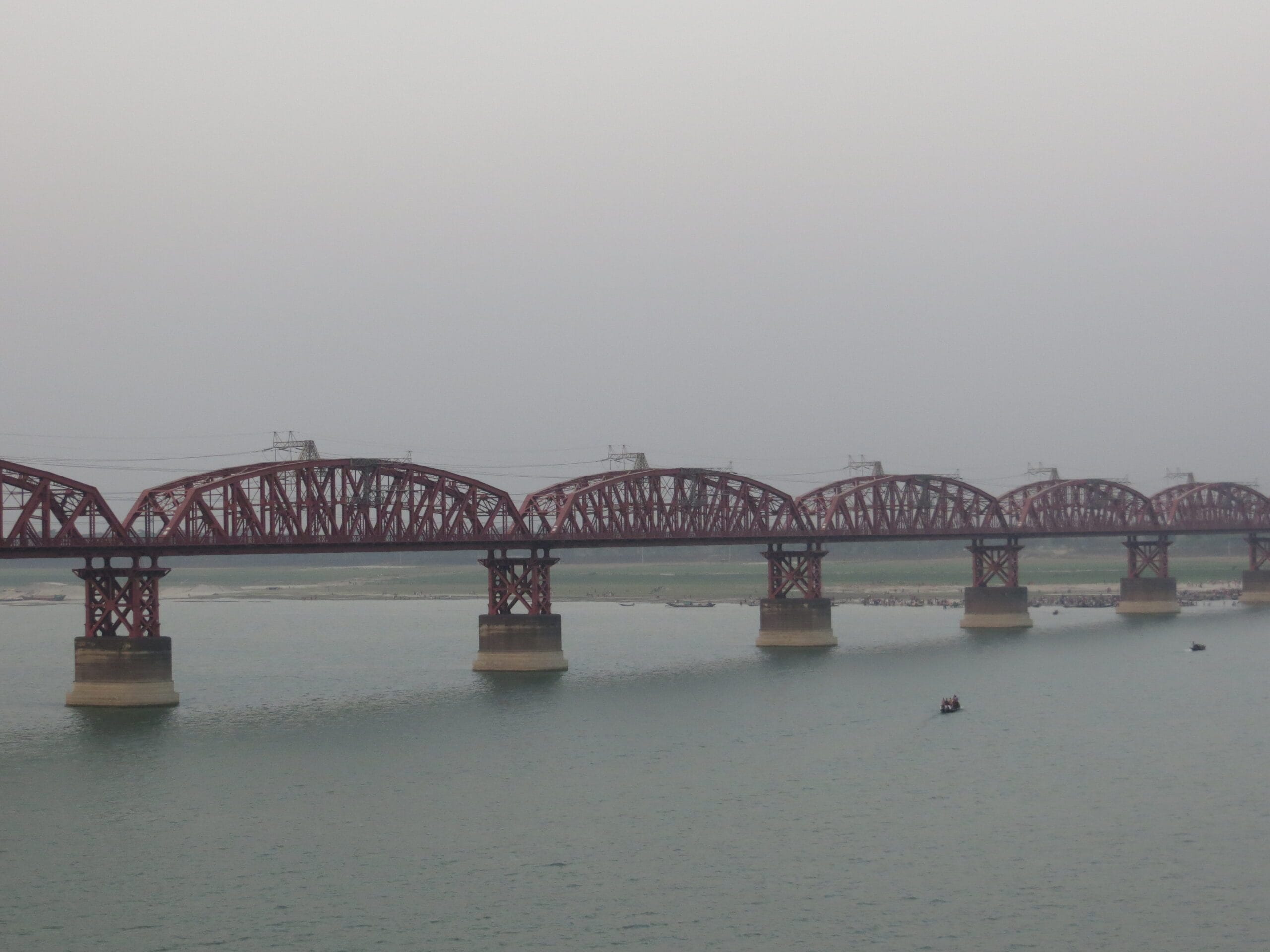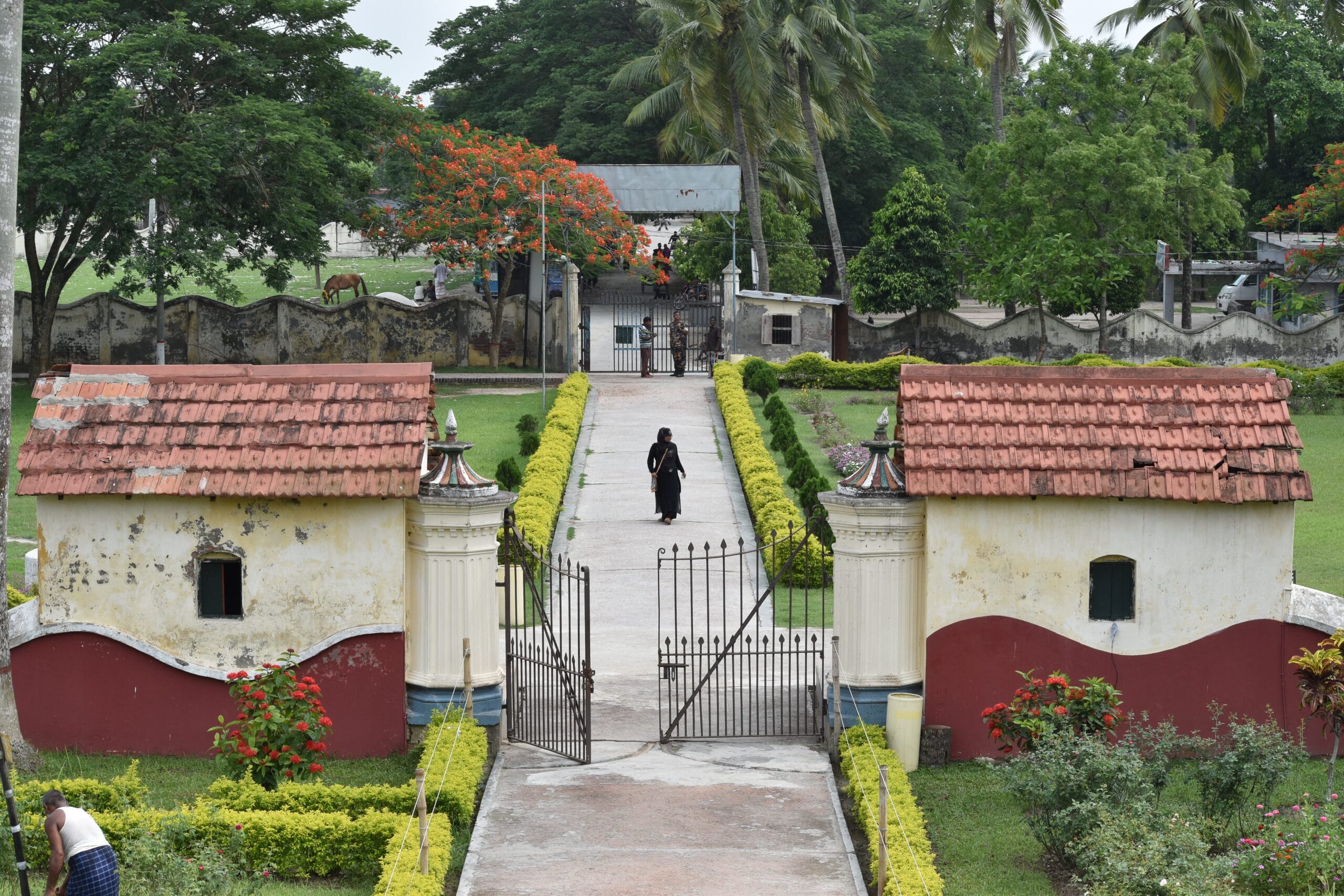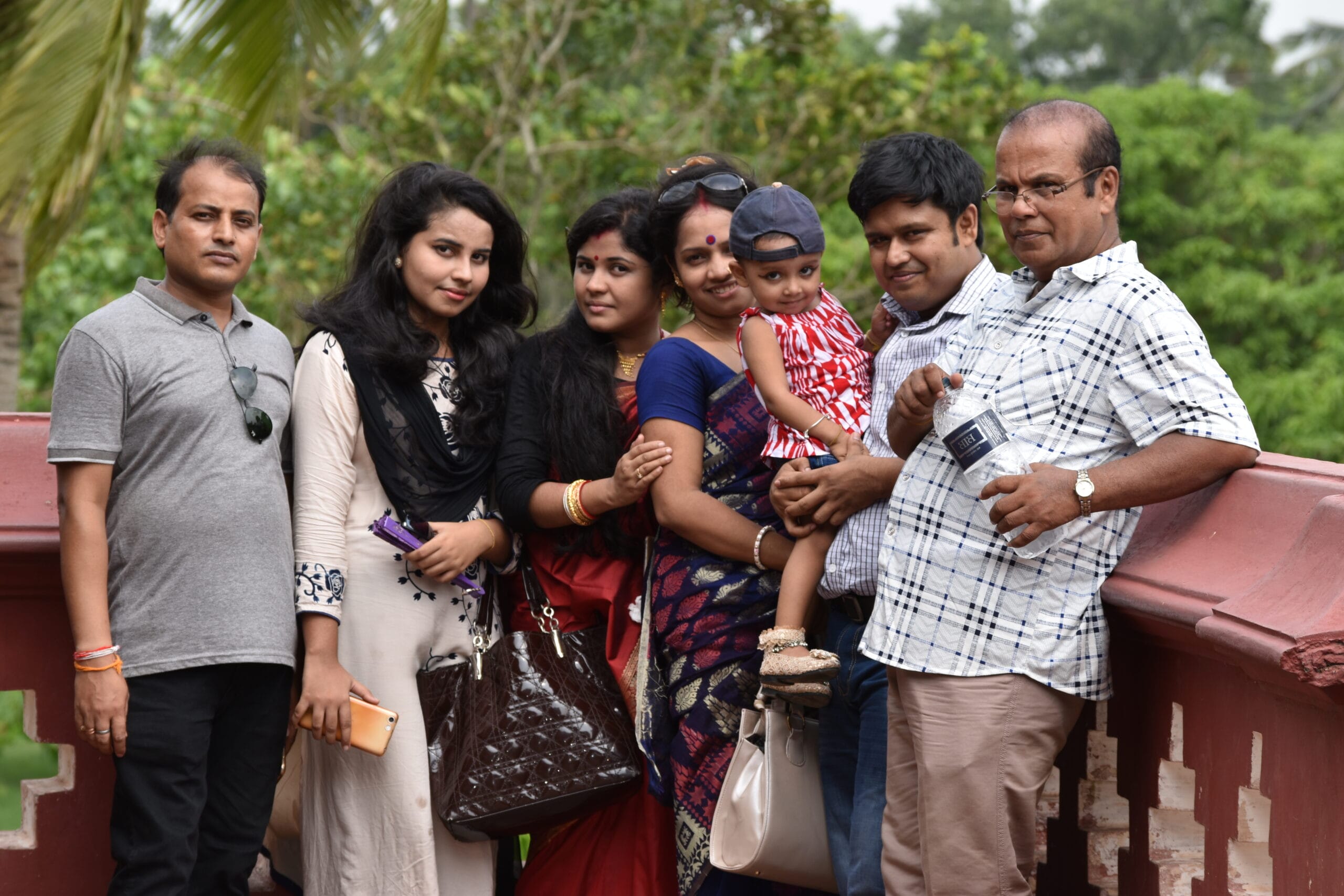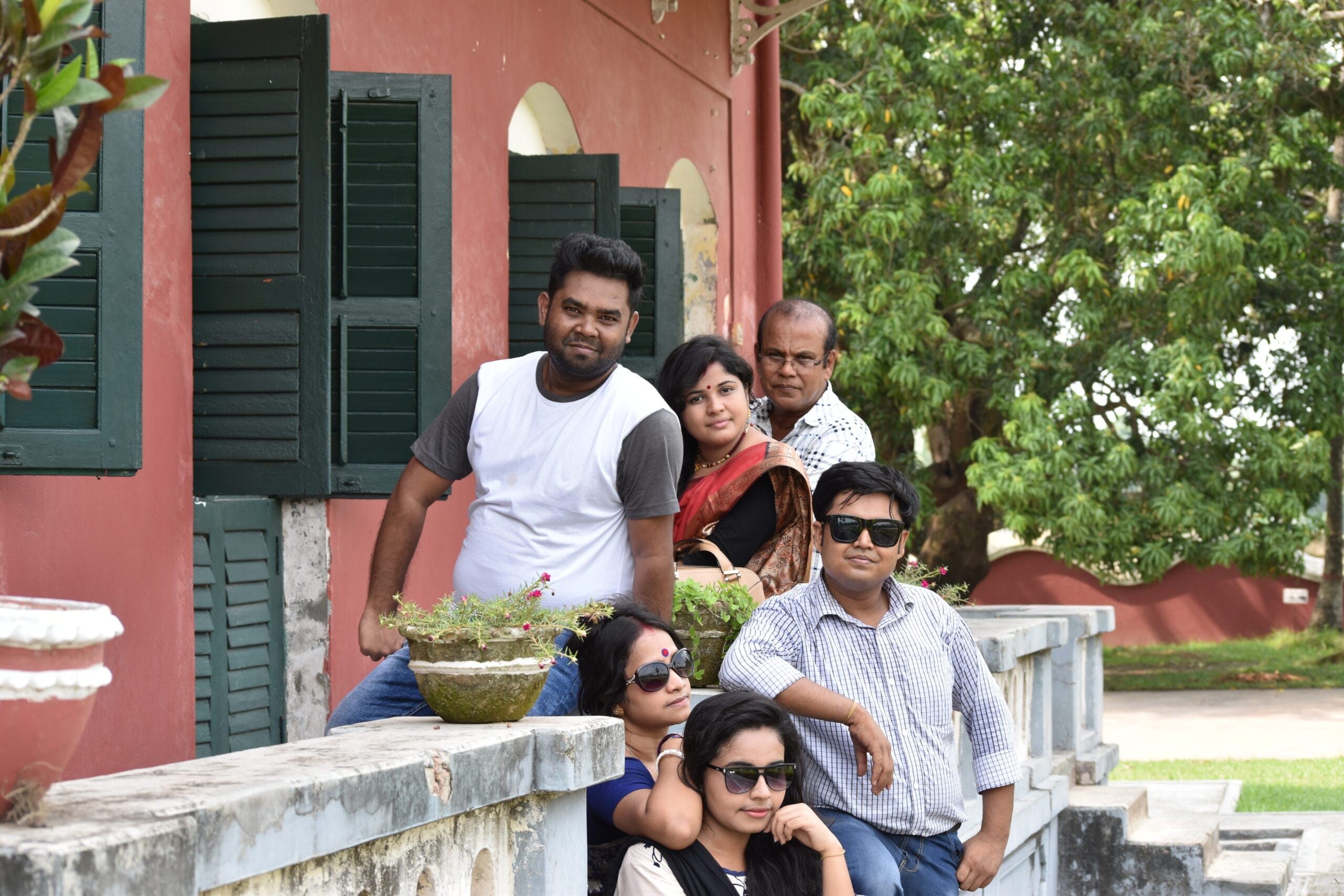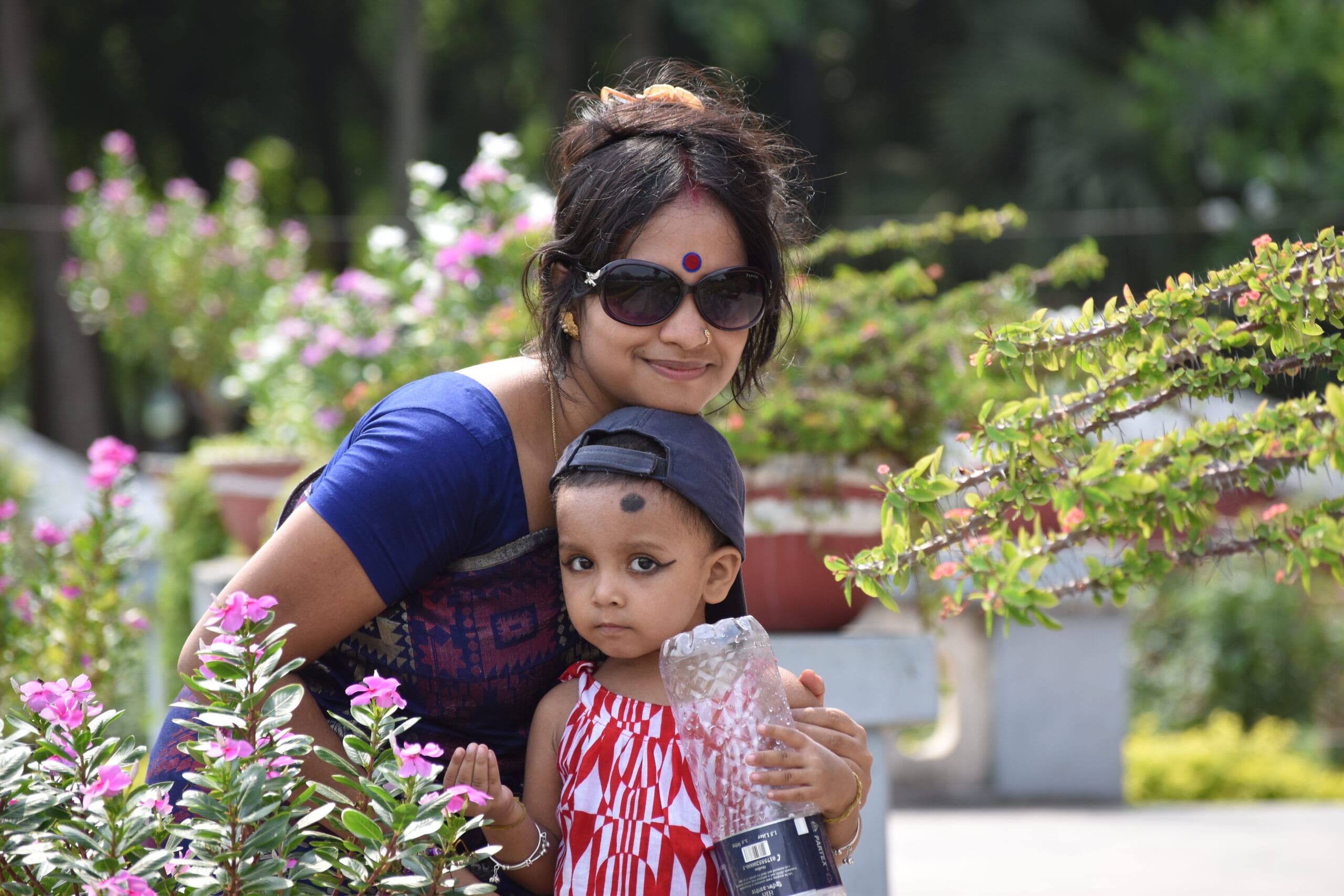When I think of Shilaidaha Kuthibari, it’s not just about a historical place or a building of bricks and wood. For me, it’s a book of memories, pages filled with laughter, love, and a bit of longing. I have been there many times, and almost every time, my uncle was with me.
The last time I visited with him was special — my wife was there, my cousins, my cousin’s husband, and later, my little girl too. We laughed, we walked through the garden, we looked at the old red building like it was telling us a story. Now, he (my uncle) is no more, but every corner of Kuthibari still whispers his voice back to me.
I’ve also been there in a very different season of my life. Just after my marriage, I went again — this time with my wife and a group of close friends — during Pahela Baishakh, the first day of the Bengali New Year. That day, Kuthibari wasn’t just quiet history. It was alive, buzzing, wearing its brightest smile. The closest one has now settled far away in another country, but in my mind, they are still there, smiling in the courtyard of Kuthibari.
Table of Contents
ToggleShilaidaha Kuthibari – where time and memory live together
The First Glimpse
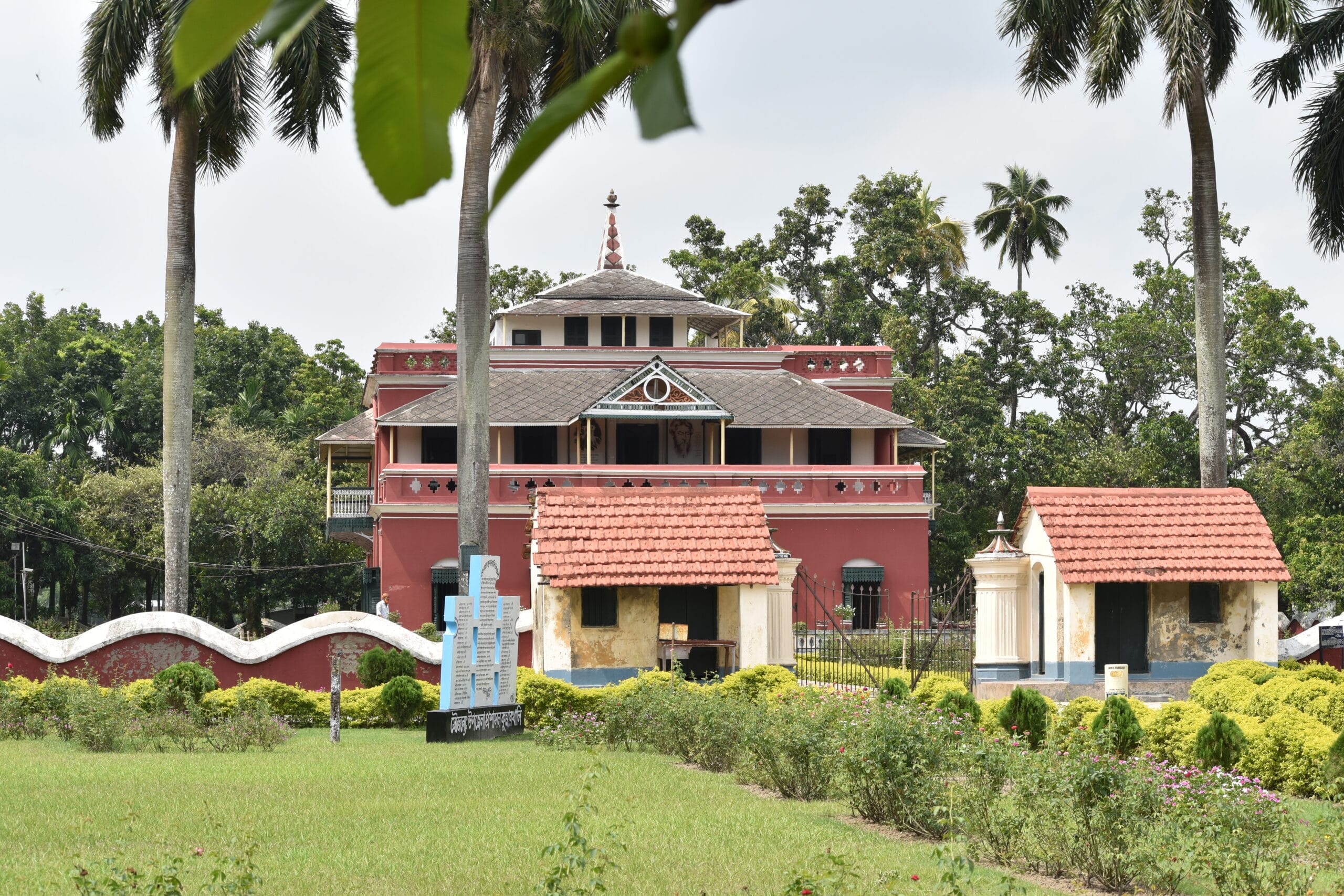
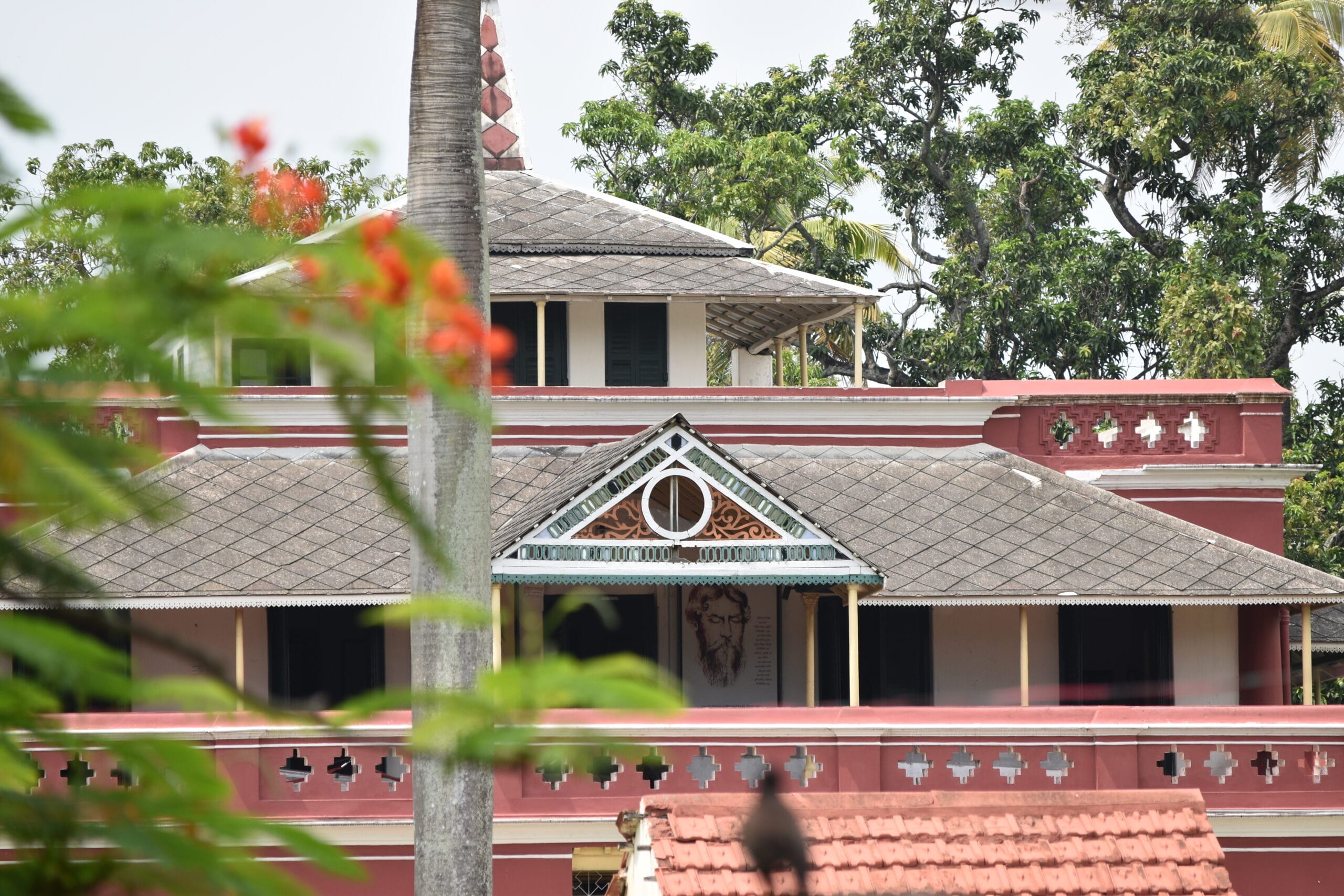
When you step inside the grounds, the first thing you see is the deep red of the building, standing strong in the middle of open green lawns. It’s not grand in the way of palaces, but it has a quiet dignity. The wooden balconies and tall windows look like they’ve been watching the world for a long time.
I still remember that first childhood visit. I held my mom’s hand, while my uncle pointed at the river and told me stories. Now, when I come back, I still see that little boy in my mind, running ahead on the path, trying to reach the big doors first.
The Padma River flows nearby, calm and wide, carrying its own history. I remember my uncle and I standing on the roof, looking out at the Padma River, talking about life. He told me about his younger days and how the world had changed. Those conversations are treasures now.
A Place for Words and Silence
Shilaidaha Kuthibari was once the home of Rabindranath Tagore. He lived here while managing family estates and found the peace to write some of his works. Inside the house today, you’ll find furniture, photos, and belongings connected to him.
The rooms aren’t fancy, but they feel important. You can almost imagine him sitting at a desk, looking out toward the river, thinking of lines for his poems.
When I brought my daughter here for the first time, she was too little to speak about Tagore or understand who he was. She didn’t ask questions or look at the exhibits. Instead, she just ran across the yard, chasing butterflies, laughing freely. Watching her play made me realize something — she was making her own first memory of this place (Although I’m not sure if she’ll be able to remember these things or not, when she grows up.), the way I once did as a boy.
Tagore’s quiet years here shaped his writings deeply
Pahela Baishakh at Kuthibari
While Kuthibari is usually peaceful, Pahela Baishakh transforms it into something magical. The grounds fill with people dressed in bright saris and panjabis, Baul singers perform under the shade of trees, and the smell of fresh pithas drifts through the air.
The year I came just after my marriage, the courtyard felt alive. My friends and I wandered between stalls, tasting different sweets, buying little handicrafts, and listening to folk music. We stood under the big banyan tree, sat by the pond, singing in my mind — something I will never forget.
That day, the whole place felt like it was celebrating not just the new year, but life itself. Now, those same friends live far away, and though we can’t stand under that tree together anymore, in my mind, we are still there, laughing.
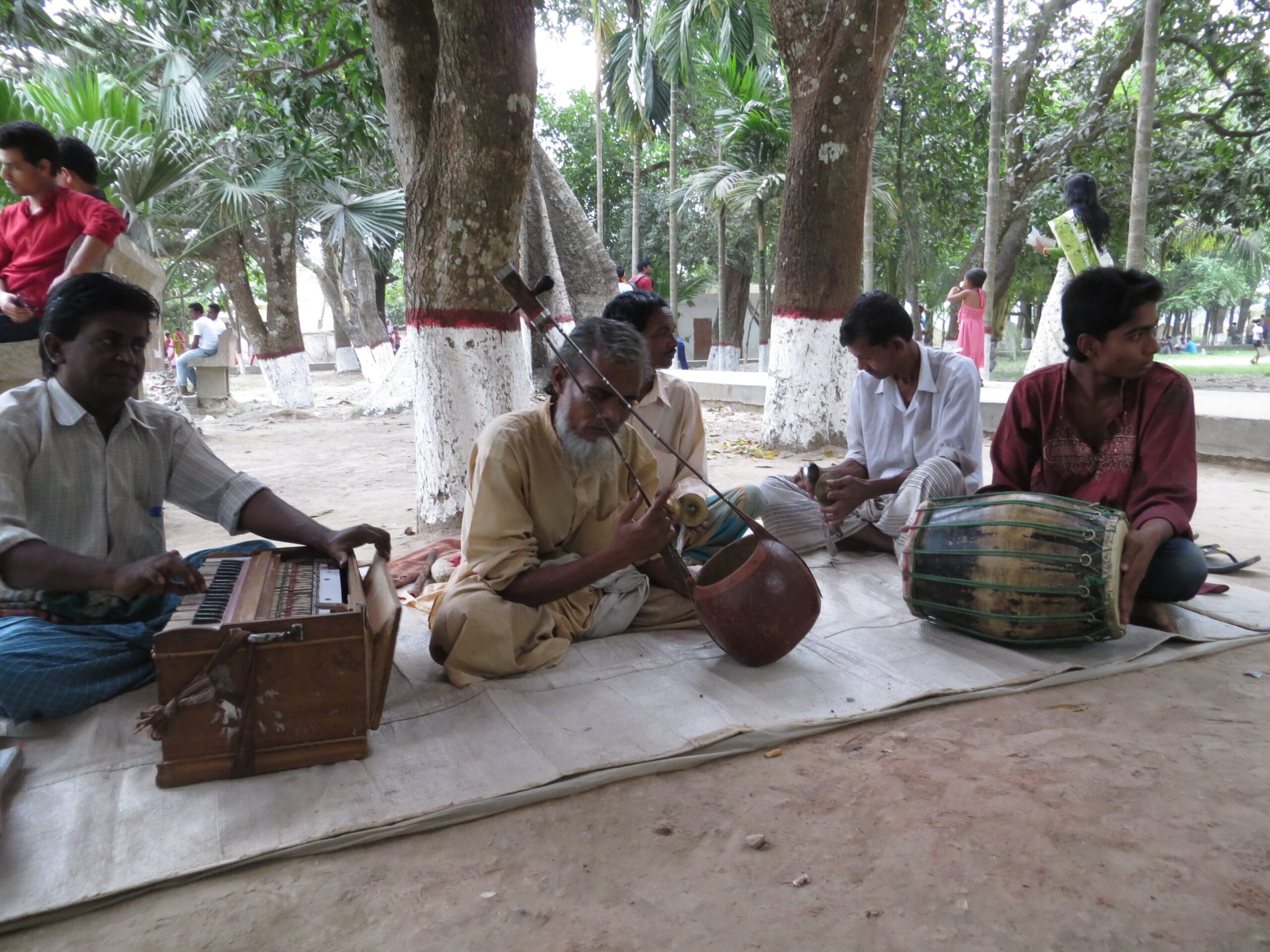
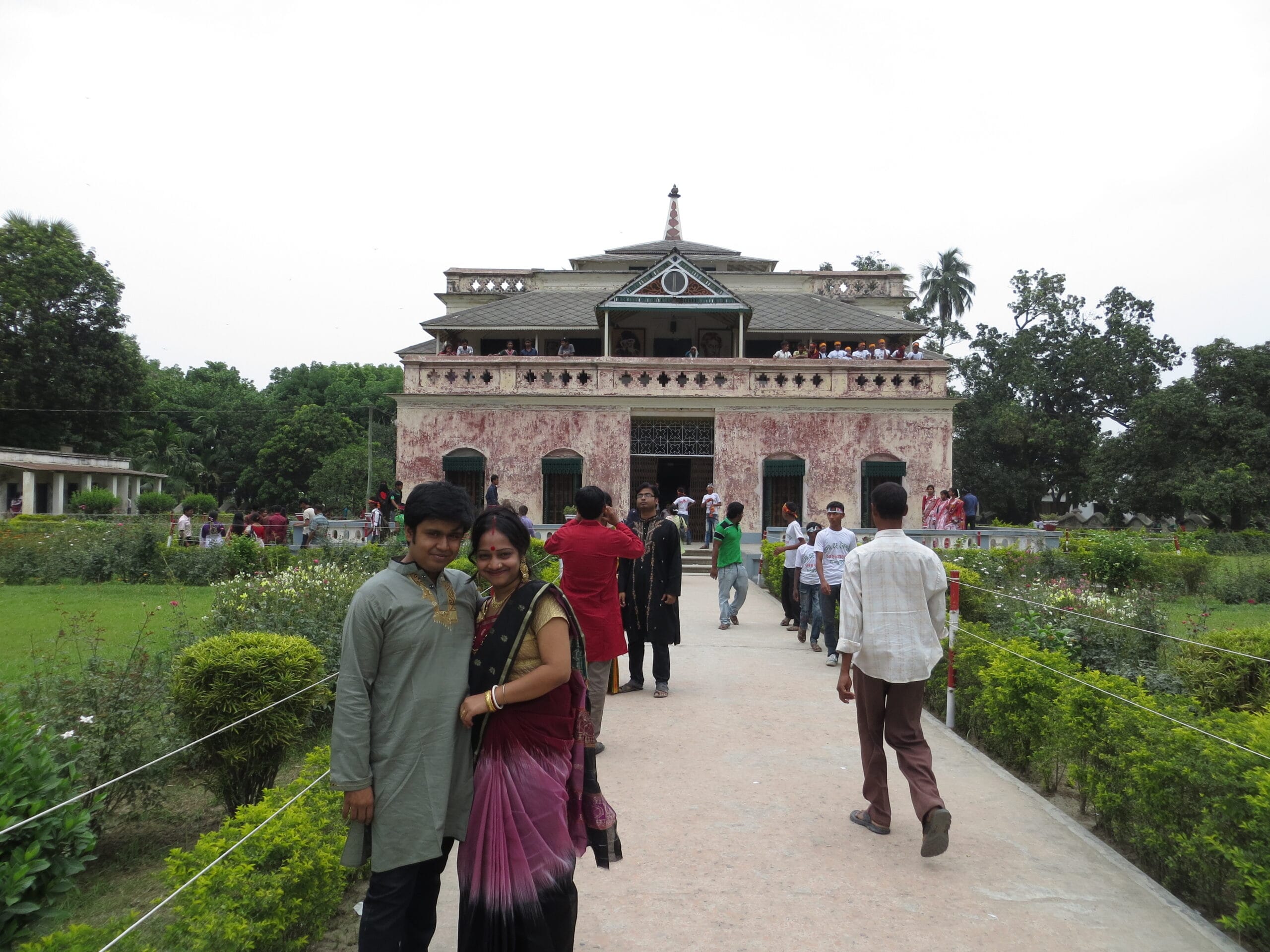
How to Get There
Shilaidaha Kuthibari is in Kumarkhali Upazila, Kushtia district, Bangladesh. From Dhaka, you can take a bus or train to Kushtia, then a local ride to Shilaidaha. The road to the site passes green fields, small villages, and glimpses of rural life that make you slow down and enjoy the journey.
More information can be found here on Wikipedia.
Why I Keep Going Back
I have visited many places in Bangladesh, but Kuthibari is one of the few I return to again and again. The building stays the same, the river flows the same way, but my life changes each time. The people who walk beside me change. Some are gone forever, some are far away, and some are new.
Every visit feels like meeting an old friend who remembers all your past conversations. Kuthibari remembers my boyhood visit with my mom and uncle. It remembers my young married days with friends. It remembers my little girl running across the lawn.
And maybe, that’s why it holds my heart — because it keeps all those versions of me safe.
Final Thoughts
If you ever visit Shilaidaha Kuthibari, don’t just walk through it like a museum. Sit in the garden, by the pond, stand on the roof, look out at the river Padma. Let the place speak to you. One day, you might look back and realize it became part of your own story too.


